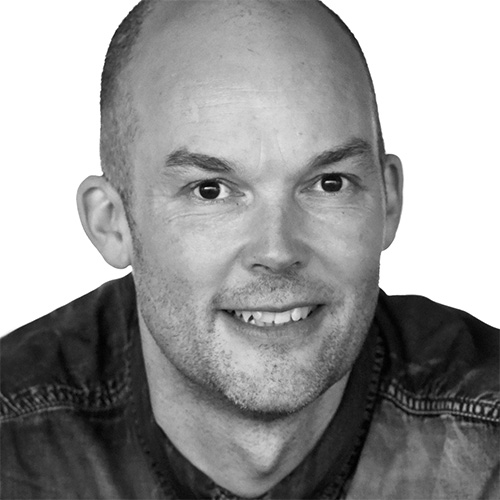
Richard co-founded Axis Studios in 2000 after an early career in graphic design, digital art, and animation. As CEO and Executive Producer, Richard has used his considerable client-facing experience and industry knowledge to grow Axis to over 350 talented people.
Richard has overseen key projects for the studio, including the Emmy Award-winning Lost In Oz for Amazon Studios, Royal Television Society Award-winning Kiss Me First for Channel 4, the Emmy Award-winning episodes of Love Death & Robots for Netflix, and the animated feature film Scrooge: A Christmas Carol, which ranked in the Top Ten Films Worldwide on Netflix throughout December 2022.
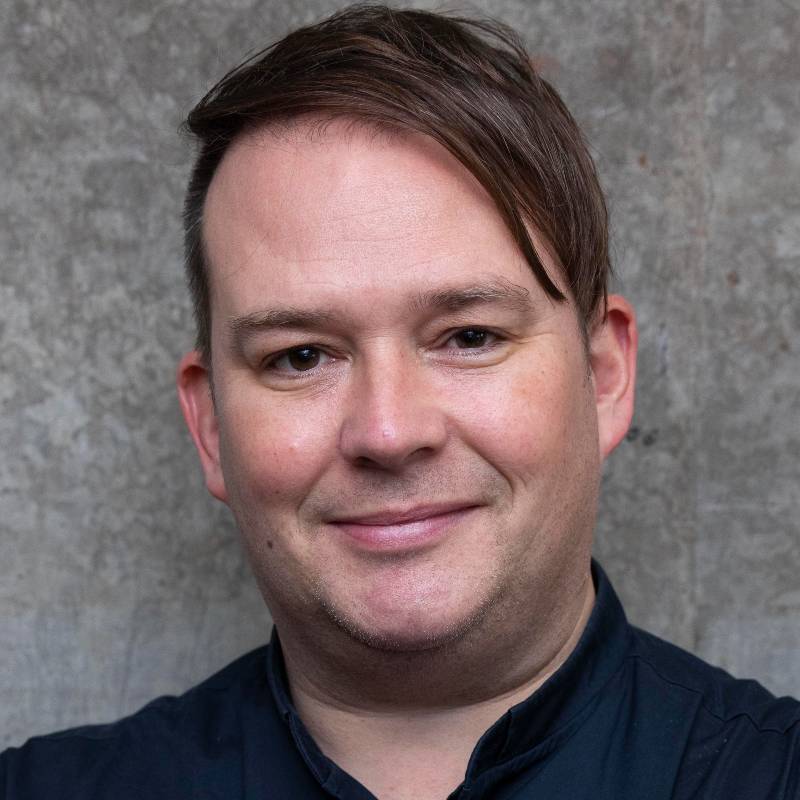
Toby Coffey is Head of Digital Development at the National Theatre where in 2016 he established the Immersive Storytelling Studio. The Studio examines how Virtual, Mixed and Augmented Reality along with other emerging technologies can widen and enhance the NT's remit to be a pioneer of dramatic storytelling and to enable an audience to stand in the shoes of another.
The Studio has had its portfolio of projects shown at the Venice, Sundance, Tribeca and London Film Festivals, IDFA, National Theatre, The Young Vic, MoMA and TATE Modern. Toby has over 20 years' expertise in the digital arena from creative, technical, production and social perspectives.
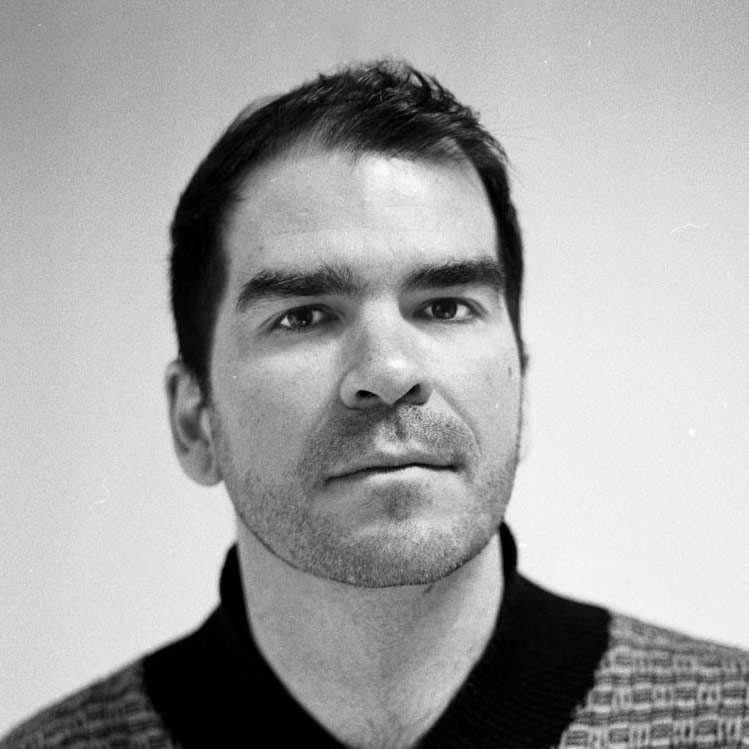
Co-Creative director at POCCO. Alexandre brings a multidisciplinary background and incorporates its aesthetics philosophy into robotics. PhD student in robotics, CEO and co-founder of Konpanion and Robobrico. Background as an entrepreneur in fashion and Luxury hospitality in Paris, designer at residence for Design Informatics (the University of Edinburgh) and leading designer for the Small Robot Company.
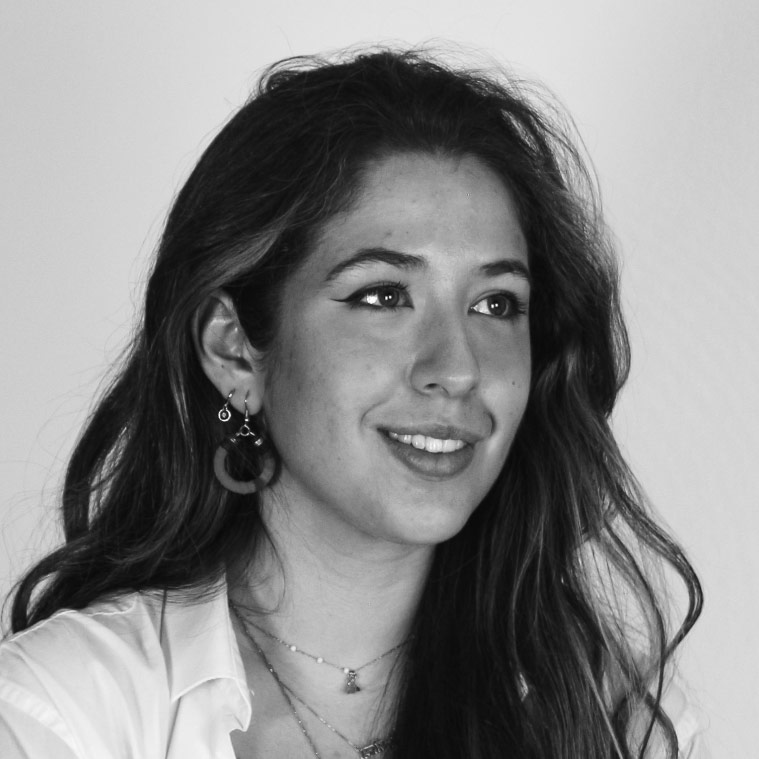
Co-Creative director at POCCO Camila, holds a BA (Hons) in Product and Industrial Design, the University of Edinburgh. She is the head of Product for Konpanion and a co-founder at Robobrico, a modular service robotic company. As a multidisciplinary designer, with a versatile creative and technical mindset, she is flourishing at the border of technology and the arts.

Madeline Squire is a creative dance artist and choreographer from London, living in Glasgow, working with Scottish Ballet.
She has worked both with digital dance as well as stage. Her work is influenced from her own experience of neurological recovery and approach to disability. Celebrating and exploring the beauty in uniqueness, with a new perceptive of working. Madeline have created work independently and for Scottish Ballet, Nowness and Nexus Studios. As well as collaborations with photographers, digital artists, schools/ educations, designers, dramaturges, musicians, directors, and wonderful dancers.

Dave is Creative Director and co-founder of CreateFuture, an innovation & design company that puts creativity to work, driving sustainable growth through brand, proposition and experience design. Based in Edinburgh, they work with international brands such as adidas, Expedia and Penguin Random House. Recently acquired by the XDesign group, CreateFuture are part of a 450+ team of product designers and engineers.
An international award-winning creative director (Webbys, BIMA, Marketing Society, Drum). During his 20 year career, Dave has created confident digital experiences for companies such as Disney, BBC, Universal Pictures, Adidas, Penguin, Rothschild, Lloyds Bank and Expedia. When he isn't leading creative projects, he is most likely playing with his two daughters or exploring on his motorbike.

Verena is the Head of Research & Innovation at ISODESIGN, an award-winning Glasgow-based digital design and software studio that specialises in the creation of large-scale immersive media and interactive experiences. Leading the studio's R&D arm isoLABS, she and her team explore the creative application of emergent technologies and how these can shape new audience behaviours.
Working with partners in academia, within cultural organisations and across the creative industries, Verena is interested in seeing how experimental and bluesky projects can lead to tangible commercial returns and strategic change within the studio. Recent collaborations include a speculative tech workshop with National Theatre of Scotland, the virtual exhibition 'Dressing Above Your Station' with Tramway and Panel, and 'StoryTrails', the UK's largest immersive storytelling project with StoryFutures Academy.
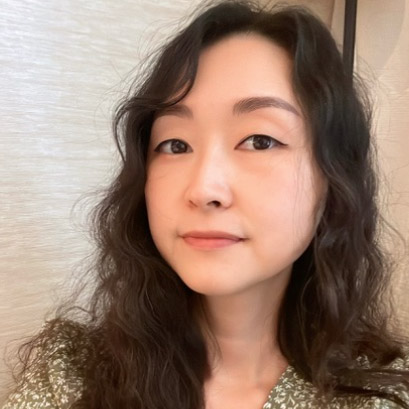
Jung In Jung is a sound artist and researcher based in Scotland, originally from South Korea. Her practice and research focuses on creative experiments using interactive game technology, embodied digital expression, digital art/game aesthetics, accessibility/inclusivity, and playful engagement. Her sound and interactive dance works have been shown at international conferences and festivals such as Sonica, ISEA, xCoAx, ICLI, PlayAway Festival, NEoN Digital Arts Festival, MIVSC Sao Carlos Videodance Festival, Athens Video Dance Project, Vivarium Festival, and among others. In 2019, she joined the AHRC-funded project InGAME in Dundee as a Postdoctoral R&D Fellow in Interactive Engagement. She is also teaching at Abertay University as a Lecturer in Creative Computing.
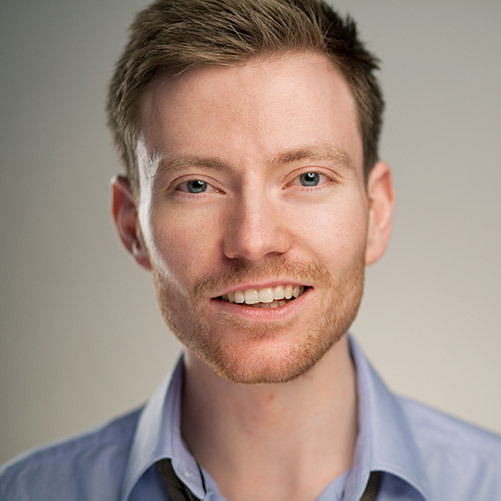
Barry Robertson is the founder of 'The Grey Hill' an organisation responsible for supporting theatres to become data-driven through audience interactions. Barry develops forms of digital engagement and interaction via audio theatre, and interactive audio theatre via Amazon Alexa. He has 10 years of experience working in theatre production and community engagement. He is currently developing AI to support data-driven innovation in the Scottish Theatre sector supporting production creation, audience development and accessibility of theatre working with Dumfries Royal Theatre and The Gaiety Theatre.

Chagall puts a beating heart in music & technology. She sings, composes, dances, programs, experiments and paves her way through everything that is human. Captivating, playful and intimate; every performance by Chagall is a spectacular audio-visual experience that inspires and connects.
Chagall has no educational background in either music or technology, but is a living example that technology, computer programming and electronics can be mastered if you know what you want to get from it.

Dana Dorian is a multi-BAFTA-winning director with over 20 years of directing experience. Born in Malaysia, raised in New Jersey, and trained as a portrait painter in New York, he has always been fascinated with the human condition and telling stories. Shortly after receiving a Masters of Fine Art Degree in Scotland he saw Toy Story which inspired him to pursue a career in computer animation and filmmaking.
In 1995 Dana was hired by a small CG animation company outside Glasgow where he learned to apply his painting and storytelling skills to computer animation. In 2000 he co- founded Scottish-based animation studio Axis Studios, which has since become one of the largest and successful computer animation companies in the UK.
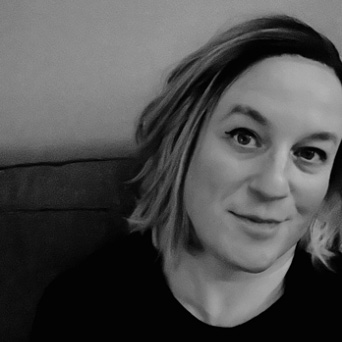
Jamie designed the heart-pounding Golden Globe & Emmy-lauded series BODYGUARD for Netflix/BBC and also recently designed the cat-and-mouse thriller WE HUNT TOGETHER for SHOWTIME.
She trained in Industrial Design at the Glasgow School of Art before perusing a career in film and tv and commercials for the last 20 years, and recently took the reigns to supervise Neil Gaiman's Anansi Boys for Amazon. Working between Scotland and London she's designed across all genres and budgets, winning accolades for her work (BFDG 2020, 2021) alongside being a collaborator on many award winning features.

Martin Disley is an artist, researcher and developer. His practice is rooted in critical, material investigations into machine learning systems. Through software, film and installation, his work manifests the internal contradictions and logical limitations of artificial intelligence in beguiling images, video and sound.
Martin was a recent participant in arebyte Gallery's Hotel Generation artist development programme, he was artist-in-residence at the National Library of Scotland and has received commissions from The Institute for Design Informatics, the Indeterminacy Research Group at the University of Dundee and Extinction Rebellion. His work has been presented at arebyte gallery/AOS (London, UK/Online), Akademie der Kunst (Berlin, DE), Unsound Festival (Krakow, PL), the V&A Museum (Dundee, UK), The Centre for Contemporary Arts (Glasgow, UK) and Kunstencentrum Vooruit (Ghent, BE).
Martin is the co-founder of the collaborative research studio, Unit Test, the main vehicle for his recent work. Unit Test is engaged in artist enquiry, exploring the place of investigative methods in counter data-science practice through documentary film, reportage and workshops. Their debut short film Not I interrogates the role of deep learning in contemporary vocal profiling technology.

Helen Scarlett O'Neill is a site-responsive and immersive arts specialist utilising game theory and participatory practice to explore space. Helen most recently produced 16 mobile augmented reality pieces at locations across the UK for Story Futures Academy in collaboration with the British Film Institute. Her background is as an immersive performance designer, leading the design of projects for Secret Cinema, London Contemporary Orchestra and the National Trust. Her own company has produced interactive performance art and site-responsive experiences, most notably the intimate travel performance Surrealist Taxi. Helen co-curated London InTRANSIT festival of art in unexpected spaces and the Portobello Pavilion public space pop-up. She lectures Contemporary Art Practice part time at Gray's School of Art with a focus on digital/AV practice.

Ann Marie is a designer jeweller and maker using 3D printing and been involved with, designing for, and using this technology for the past 25 years. Ann Marie is known and respected by her peers internationally for her creative work and her past as an academic researcher for her knowledge and expertise in the area of haptics for creativity and designing in the applied arts.
She is CEO and co-founded, with Xiaoqing Cao, in 2007 haptic software development company, Anarkik3D Ltd, based in Edinburgh, which spun out of research into haptics that Ann Marie led at Edinburgh College of Art and University of Edinburgh. Anarkik3D’s amazing haptic (touch-enabled) 3D modelling software product, Anarkik3DDesign, is designed for those in the arts, designer-makers and commercial creatives, and enables them to touch and feel their model in three dimensions as they create it.
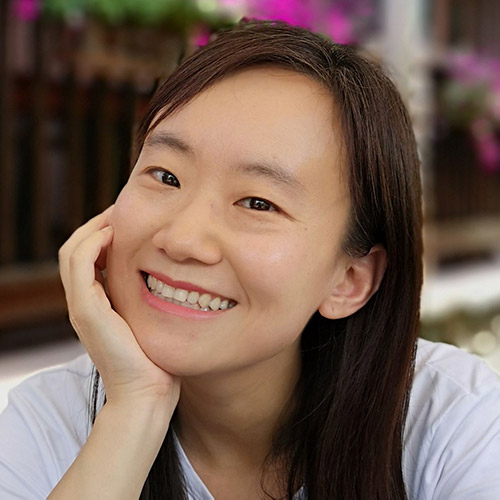
After finishing MSc in Computer Science at Edinburgh University, Xiaoqing Cao joined Ann Marie Shillito's Tacitus team in 2004 as a research assistant when it was still a research project in ECA. Together they founded Anarkik3D Ltd in 2007 and Xiaoqing was involved as a developer, then as the technical manager until 2010 when she went back to China for personal reasons. She returned to Scotland last year and feels happy to be able to join the team again to do some more exciting things.

Alex makes software, organises performances, capures dancers and releases them into the wild, convinces telephones to listen to the birds, makes virtual worlds tactile, believes programming can be a performance, lives on the moon, and tells lies in their personal bio. They are an experienced Edinburgh software engineer who works with creatives and educators to make things that inspire people, working with wearables, haptics, VR, mobile, web, and more.
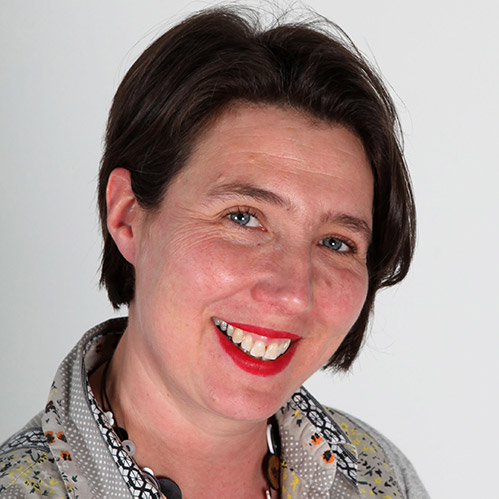
Josie Steed is a senior lecturer and design researcher at RGU's Gray's School of Art and is the school's lead for embedding sustainability development (ESD). Josie has recently led a Knowledge Transfer Partnership (KTP) with Harris Tweed Hebrides, to embed design led sustainability for year-round business. She is also Principal Investigator (PI) of the RSE-funded Immersive Scotland Network, facilitating knowledge exchange between organisations and researchers involved in immersive technologies. She is also a Co-I on the AHRC-funded Augmented Fashion and the EPSRC-funded Connected Threads project. Steed has an academic background in fashion and textile design and has worked in the industry as a knitwear designer as a textile consultant for facilitating design-led innovation practices within traditional textile manufacturing businesses.
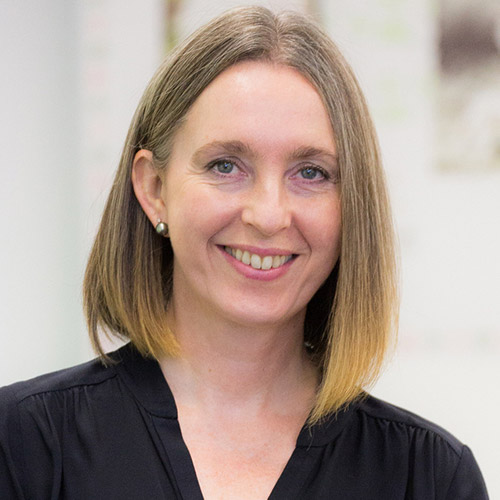
Dr Karen Cross is Associate Dean for Research in RGU's School of Creative and Cultural Business, responsible for the Fashion Management, Tourism, Hospitality and Events subject area. She is an Auroran (Women in Leadership) and a Senior Fellow of the Higher Education Authority. Karen's research interests focus on the positive impacts of fashion, whether that is through the generation of employment opportunities, the preservation of culture, heritage and artisan fashion and textile practices, or the role of fashion in providing a sense of identity, community, comfort, and wellbeing to the individual. She is also interested in the use of immersive technologies within the fashion discipline, to tell stories of place, provenance, and people.

Dr. Yang Jiang is a senior lecturer in the School of Computing and the Interdisciplinary Research Theme Champion of "Living in a Digital World" at Robert Gordon University. She is the principal investigator of Augmented Fashion: Immersive Interactions for Sustainable Heritage in Fashion and Textile (www.augmentedfashion.co.uk ), a value of £1.3 million Arts and Humanities Research Council (AHRC), a UKRI-funded project. Her research interests are majorly on 3D visualisations, Immersive Technologies, computer gaming and computer-generated 3D character animations, as well as real-time motion capture. She collaborates with artists and creative media industries on applied research in 3D visualizations and simulation, reconstructs events from videos to enrich computer animations; 3D visualizations for GIS; new games and user-centred design in the Human-Computer Interaction area. She researches the value and software hardware solutions of digital technologies in cross-disciplinary forms, such as climate change-related issues, immersive technology for fashion & textile industries, public engagement, and education etc. She also provides consultancy and other forms of income generation in the Digital Media area including creative industries.
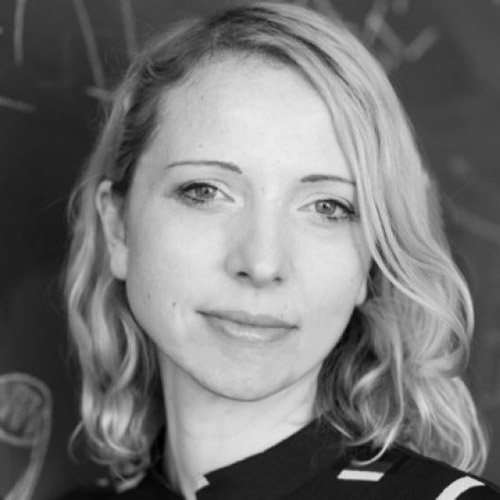
Lynne Craig is the Programme Director of the Design Informatics MA, Institute of Design Informatics at the University of Edinburgh. Her practice connects design, technology, education, and business development; exploring the frontiers of emergent technologies and cultural change. Throughout her career she has built businesses, created products, designed systems for global audiences, and continues to reimagine what the role of 'making' in design, education and business looks like for tomorrow. Lynne was Founder and Director of Digital Anthropology Lab at London College of Fashion, University of the Arts London, where she pioneered play-based design and engineering programs for fashion. Lynne is Non-Executive Director and Co-Founder of Holition Augmented Retail, and an elected member of Goldsmiths Centre Trade Advisory Strategy Committee, and Fellow, Royal Society of Arts.

Brian founded the Scottish Games Network in 2004 and has established himself as an expert in the use of applied game technologies and 'gamification' techniques within the arts world. He's a regular contributor to the media, tech ecosystem and government.
He started as a writer at the legendary Scottish studio, DMA Design, and Brian helped to bring Grand Theft Auto to life, and establish it as Scotland's biggest cultural export ever.
Then went on to found Scotland's first dedicated digital agency Indoctrimat. As Director of the Scottish Games Network, it has grown to become the industry body for Scotland's videogames and interactive industries.
Led by Edinburgh Futures Institute, the second CreativeTech Scotland Gathering brought together creative tech and data-driven innovation practitioners from across the creative industries to share, network, showcase their work and explore innovation within creative technology.
This event is supported by Edinburgh Futures Institute.